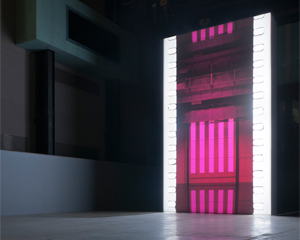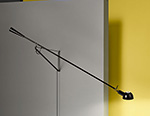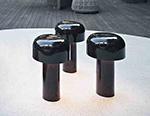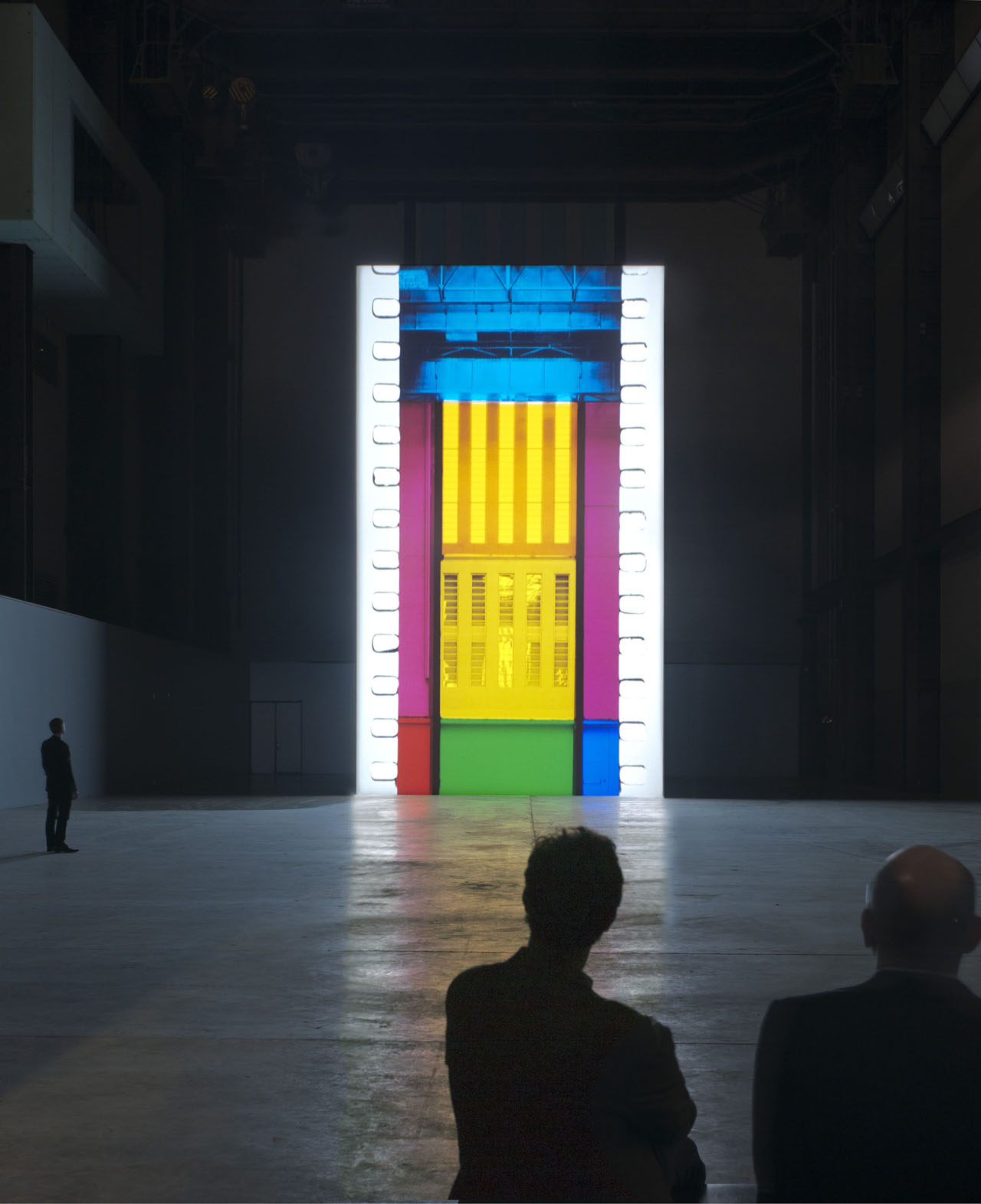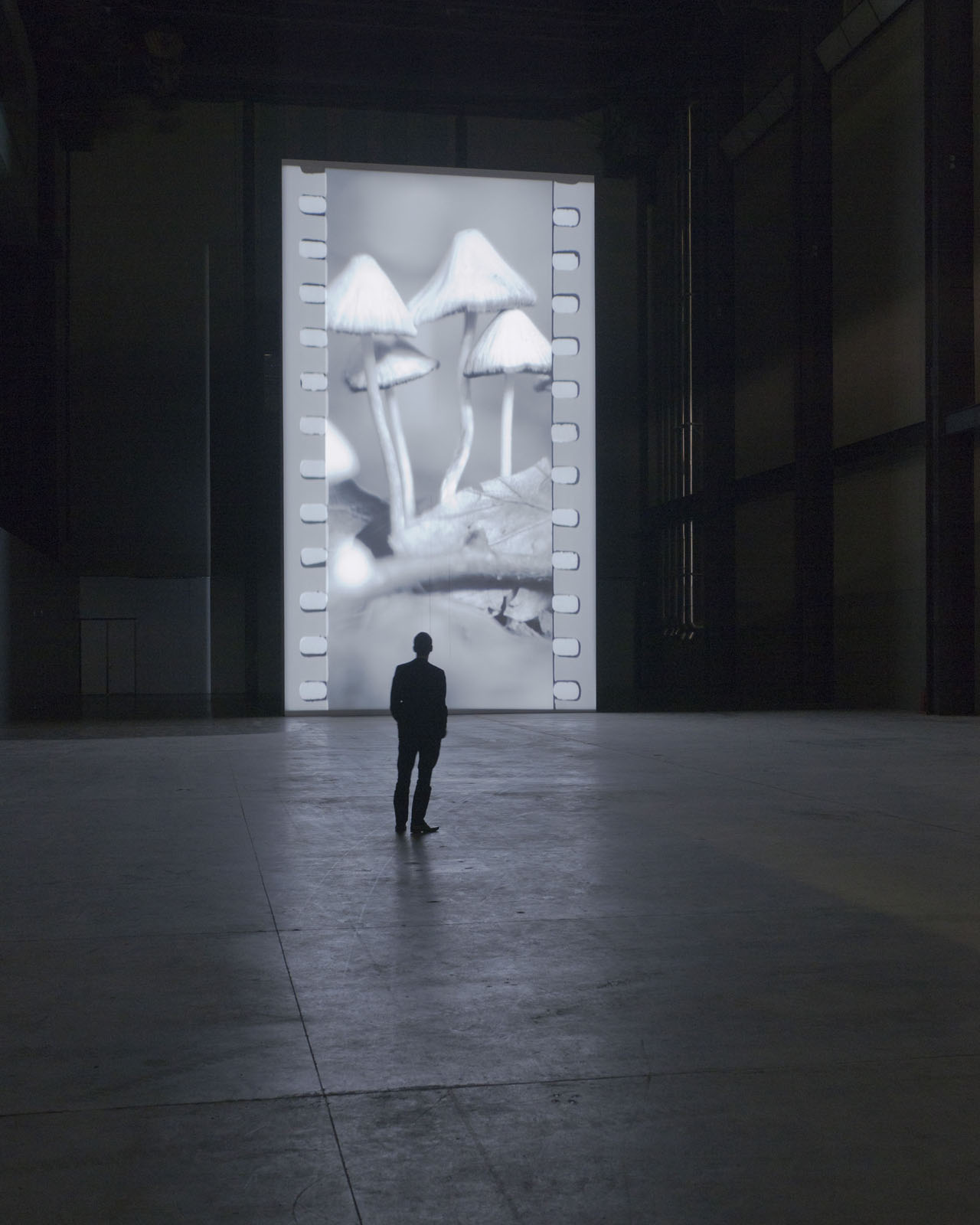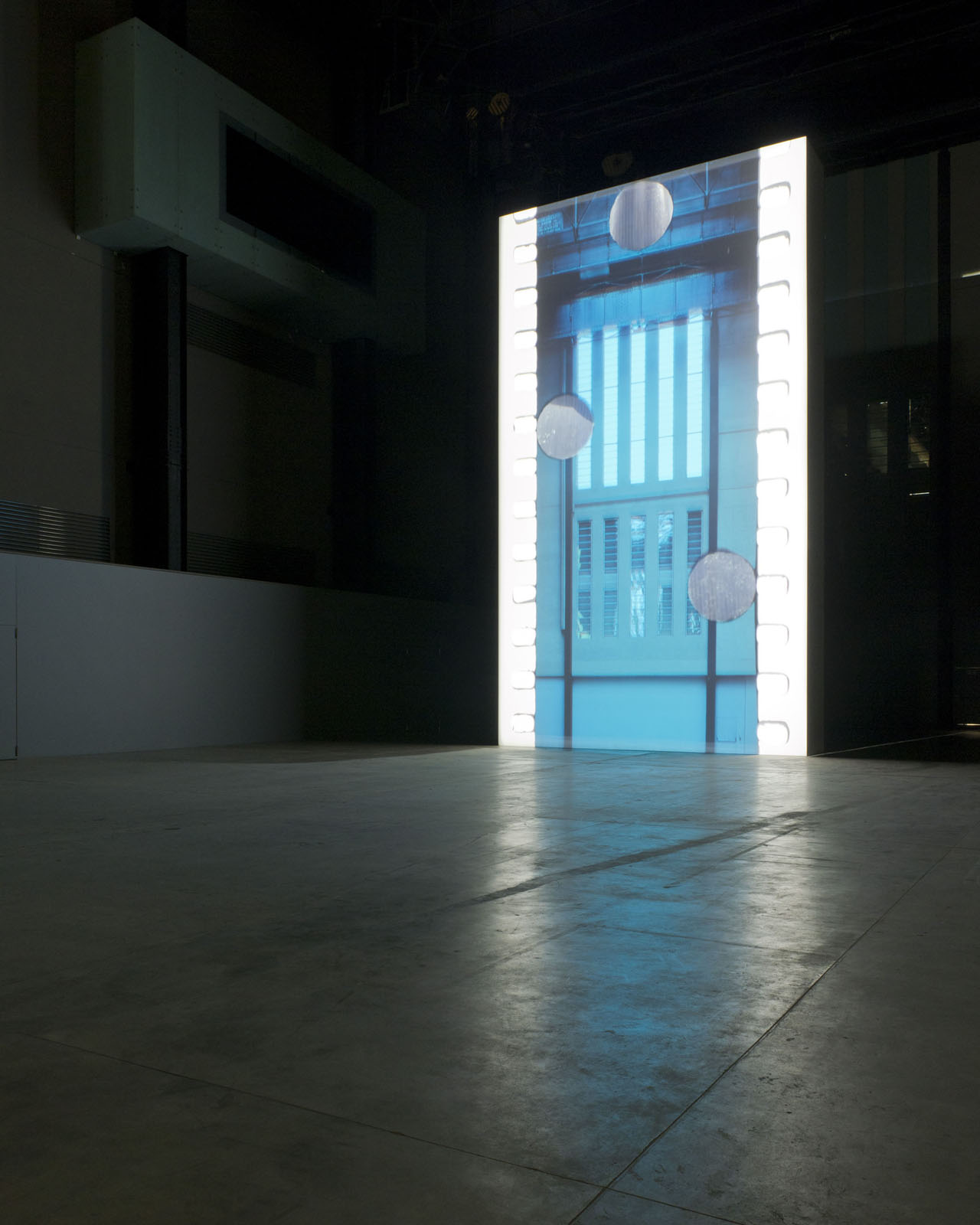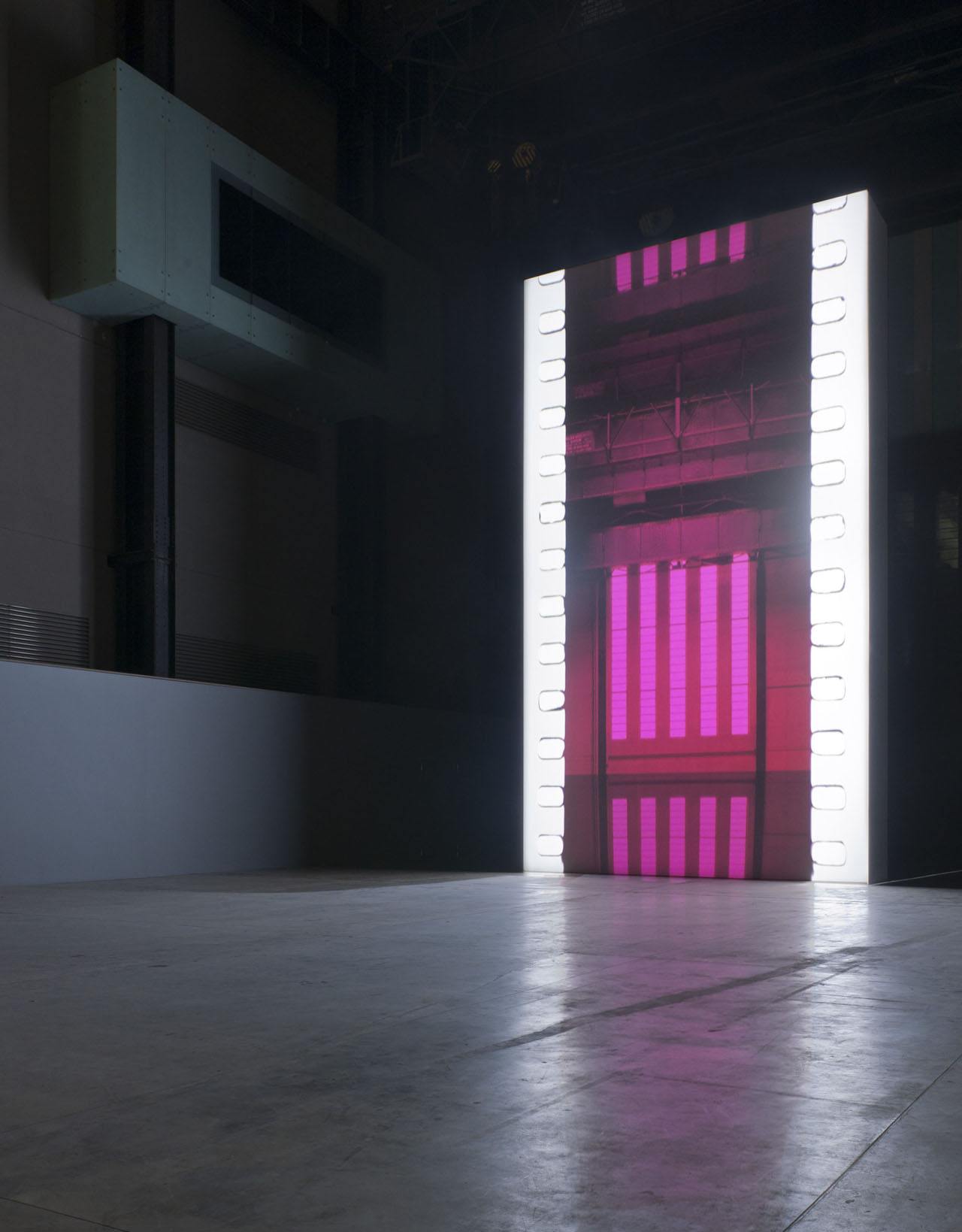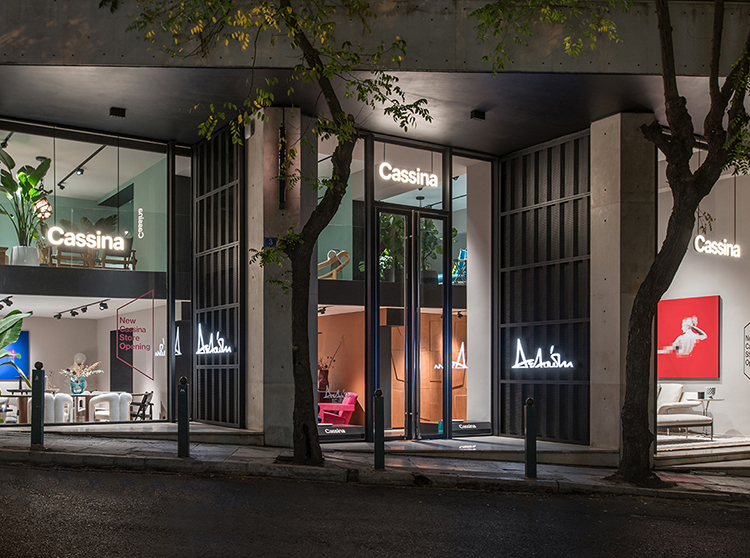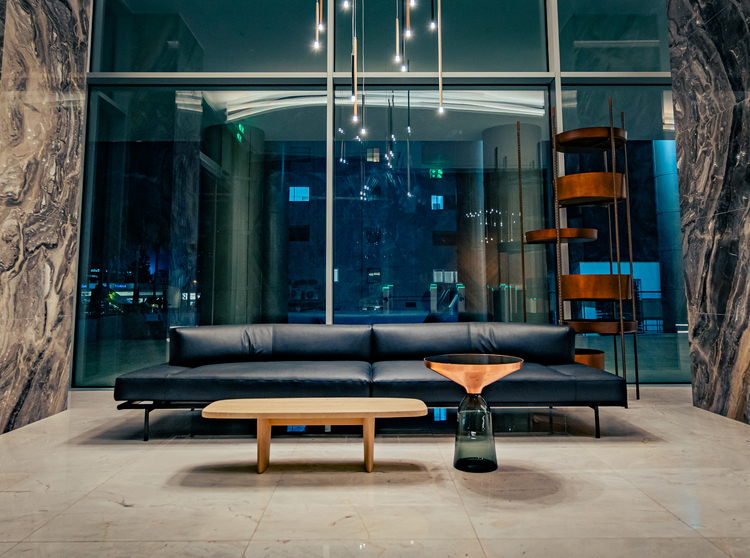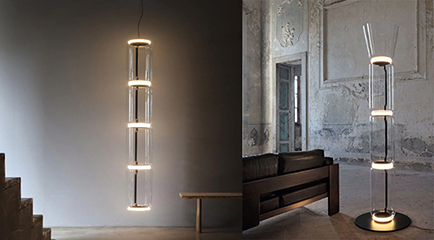Tate Modern has unveiled the twelfth commission in The Unilever Series by the artist Tacita Dean. Entitled FILM, the work is an eleven-minute silent 35mm looped film projected onto a monolith standing 13 metres tall at the end of a darkened Turbine Hall. It is the first work in The Unilever Series to be devoted to the moving image.
FILM is a portrait of the analogue, photochemical, non-digital medium of film. It was made by turning a Cinemascope lens 90? and upending the usual landscape format of the movie screen so it becomes vertical, scaling itself to the proportions of the Turbine Hall. FILM has been constructed using in-camera and studio techniques, such as masking, double-exposure and glass matte painting, to recapture the sense of wonderment generated by these skills during the early days of cinema. The images have been deliberately created during the film shoot rather than in post-production and edited by hand by the artist alone, evoking a sense of intimacy and a lightness of touch. Tacita Dean has placed her trust in the blindness and spontaneity of the analogue process in order, she explains, “to show film as film can be – film in its purest form”.
FILM is set inside the Turbine Hall and takes the appearance of a filmstrip with sprocket holes exposed onto the emulsion. The layering of imagery also conjures the transparency of a strip of celluloid, giving the appearance of being able to see through the screen itself to the wall of the Turbine Hall behind it. Playing with the distinctive architectural character of the east wall, FILM has the rhythm and metre of a visual poem. Images, some familiar from Dean’s previous works, such as lightning, trees and seascapes, juxtapose with panels of colour and interact with the grid structure of the wall. The resulting piece is a montage of black and white, colour and hand tinted images, including allusions to surrealist art, a Mondrian painting, and the mountains of Rene Daumal’s novel Mount Analogue and the Paramount Studio logo. Dean has also celebrated what is normally considered waste in filmmaking, such as the picture fading at the tail end of a roll, flash frames of over-exposure as the camera stops and starts, and the shimmering metamorphosis of a colour filter change.
Tacita Dean has worked with film throughout her career - it is her working material, and she has written that she needs “the stuff of film as a painter needs the stuff of paint”. In recent months she has voiced her concern about the declining availability and access to film as digital technologies become the norm and photochemical labs close down. With her project for the Turbine Hall and the accompanying book, Dean wants to highlight the threat that film is under, and the impact its loss will have on our culture and the future impossibility of watching over a hundred years of filmmaking in its original form. FILM seeks not only to invigorate this debate but also to stand as a testament to the distinctive qualities of this unique medium.
